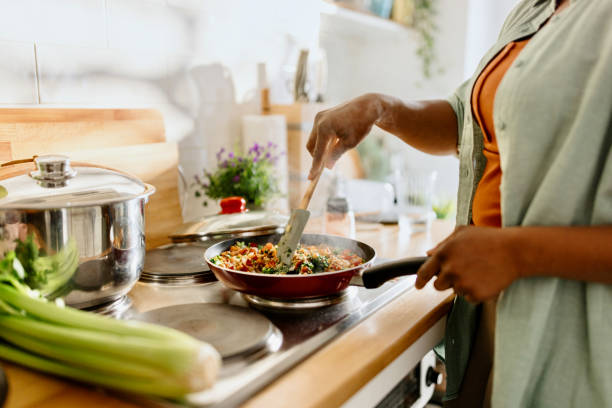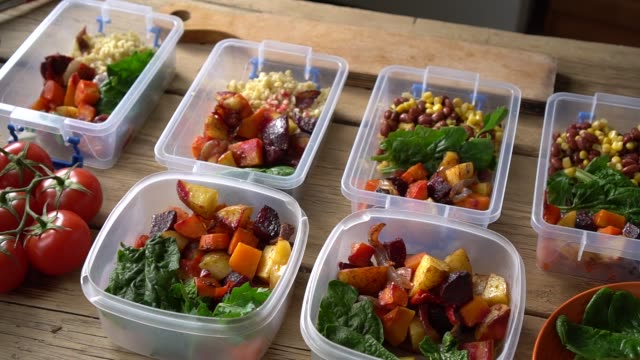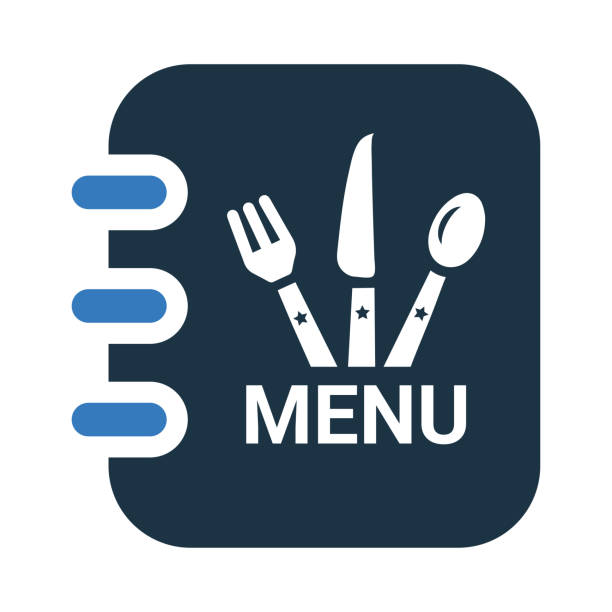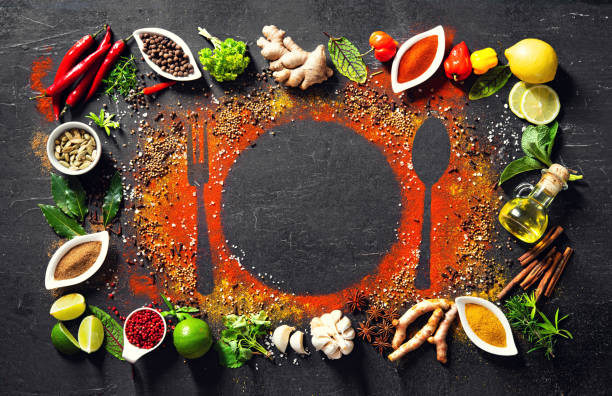Meal prepping has become a game-changer for busy individuals and families looking to streamline their lives, eat healthier, and save time and money. Whether you’re a seasoned meal prep enthusiast or just starting your journey, this comprehensive guide will equip you with the knowledge and tools to master the art of meal prepping and conquer the week ahead.
What is Meal Prepping and Why Should You Do It?
Meal prepping is the practice of planning, preparing, and portioning out meals in advance, typically for the entire week. This strategic approach to food preparation offers a multitude of benefits:

- Time-Saving: By doing the bulk of the cooking and meal assembly upfront, you can significantly reduce the time spent on meal preparation throughout the week, freeing up valuable time for other activities.
- Healthier Eating: When you have nutritious, pre-portioned meals readily available, you’re less likely to resort to unhealthy, on-the-go options or impulse purchases.
- Reduced Food Waste: Meal prepping helps you minimize food waste by carefully planning your meals and using up ingredients before they spoil.
- Improved Budgeting: Planning and preparing meals in advance can lead to more efficient grocery shopping and reduced spending on dining out or ordering delivery.
Whether you’re a busy professional, a parent juggling a hectic schedule, or simply someone trying to adopt a healthier lifestyle, meal prepping can greatly benefit you.
The Rise of Meal Prepping: A Growing Trend Meal prepping has been gaining popularity in recent years as more people seek ways to simplify their lives and take control of their eating habits. According to a study conducted by the International Food Information Council Foundation, the number of Americans who meal prep has increased by 10% since 2018, with over 50% of adults now engaging in some form of meal prepping.
The trend has also spread across social media, with platforms like Instagram and TikTok becoming hubs for meal prep enthusiasts to share their tips, recipes, and inspiring transformations. The hashtag #mealprep has been used over 10 million times on Instagram, showcasing the widespread interest and engagement in this lifestyle.
The Science Behind the Benefits of Meal Prepping Numerous studies have highlighted the tangible benefits of meal prepping. A 2019 study published in the Journal of Nutrition Education and Behavior found that individuals who engaged in meal prepping consumed more fruits and vegetables, had a higher intake of essential nutrients, and were less likely to experience weight gain compared to those who did not meal prep.
Another study conducted by the American Journal of Preventive Medicine revealed that meal prepping was associated with better dietary quality, lower caloric intake, and reduced risk of chronic diseases such as type 2 diabetes and heart disease.
The psychological benefits of meal prepping have also been well-documented. Meal prepping can provide a sense of control, reduce stress and anxiety related to meal planning and preparation, and foster a healthier relationship with food.
The Meal Prepping Mindset: Embracing Planning and Organization
Successful meal prepping starts with the right mindset. It’s all about embracing planning and organization as the foundation for your weekly culinary conquests.

Importance of Having a Plan and Staying Organized Creating a detailed meal plan and maintaining a well-organized kitchen are crucial for effective meal prepping. Take the time to assess your schedule, preferences, and dietary needs, then map out a plan that fits your lifestyle. Investing in the right storage containers, labeling systems, and other meal prep essentials can also make the process smoother and more efficient.
Tips for Getting into the Right Mindset
- Set aside dedicated time each week for meal prepping, and treat it as an important commitment.
- Establish a consistent routine, whether it’s Sunday evening or Wednesday afternoon, to ensure meal prep becomes a habit.
- Approach meal prepping with a positive and organized mindset, focusing on the benefits it will bring.
- Celebrate small wins and milestones along the way to stay motivated and engaged in the process.
Overcoming Common Myths and Misconceptions Many people shy away from meal prepping due to common myths and misconceptions. Don’t let these roadblocks hold you back:
| Myth | Reality |
|---|---|
| Meal prepping is time-consuming | Meal prepping can actually save you time throughout the week. |
| Meal-prepped food is boring and monotonous | With creativity and variety, meal prepping can be exciting and flavorful. |
| Meal prepping is expensive | Meal prepping can help you save money by reducing food waste and dining out. |
| Meal prepping is only for fitness enthusiasts | Meal prepping benefits everyone, regardless of their health or fitness goals. |
| Meal prepping requires advanced cooking skills | Meal prepping can be as simple or complex as you prefer, with recipes tailored to your skill level. |
By embracing the right mindset and overcoming these misconceptions, you’ll be well on your way to becoming a meal prepping pro.
The Psychology of Meal Prepping: Cultivating Habits and Mindfulness Meal prepping is not just a practical skill; it’s also a powerful tool for cultivating positive habits and mindfulness. When you commit to a regular meal prepping routine, you’re essentially training your brain to associate specific cues (e.g., Sunday evenings) with the desired behavior (meal prepping). Over time, this can help the process become more automatic and effortless.
Moreover, the act of meal prepping itself can be a form of mindfulness. By focusing on the present moment, measuring ingredients, and carefully assembling your meals, you can experience a sense of calm and clarity that can carry over into other areas of your life. This can lead to increased productivity, reduced stress, and a deeper appreciation for the food you consume.
Building Your Meal Prep Arsenal: Essential Tools and Ingredients
To ensure your meal-prepping endeavors are a success, it’s important to have the right tools and ingredients at your disposal.

Recommended Kitchen Equipment
- High-quality food storage containers with airtight lids: These are essential for keeping your prepped meals fresh and preventing leaks or spills.
- Insulated meal prep bags or lunch boxes: Invest in these to easily transport your meals and keep them at the right temperature.
- Slow cooker or Instant Pot: These hands-off cooking appliances can be a game-changer for meal prepping, allowing you to prepare large batches of soups, stews, and other dishes with minimal effort.
- Cutting boards, sharp knives, and other essential cooking utensils: Equip your kitchen with the necessary tools to make meal prep efficient and enjoyable.
Stocking Your Pantry and Fridge Fill your kitchen with a well-stocked arsenal of proteins, vegetables, grains, and sauces to make meal prepping a breeze. Some essential items include:
- Lean proteins (chicken, turkey, fish, tofu, beans)
- Seasonal fruits and vegetables
- Whole grains (brown rice, quinoa, oats, whole wheat pasta)
- Healthy fats (olive oil, avocado, nuts, seeds)
- Flavorful sauces, spices, and seasonings
- Staple ingredients like broth, canned tomatoes, and condiments
Having these fundamental ingredients on hand will allow you to quickly assemble nutritious meals and mix and match components to create variety throughout the week.
Budgeting for Meal Prepping Contrary to popular belief, meal prepping can actually help you save money in the long run. By planning your meals and shopping strategically, you can reduce food waste and minimize impulse purchases or dining out expenses.
Here are some tips to maximize your meal prepping budget:
- Make a comprehensive grocery list and stick to it to avoid overspending.
- Take advantage of bulk buying and sales on non-perishable items.
- Look for frozen or canned produce and proteins, which can be more cost-effective.
- Repurpose leftovers and use up all the ingredients you purchase.
- Invest in reusable storage containers to save on single-use options.
With a bit of planning and resourcefulness, meal prepping can be a budget-friendly approach to eating healthier and saving time.
Mapping Out Your Weekly Meal Plan
Crafting a well-thought-out meal plan is the key to successful meal prepping. Here’s how to approach it:

Assessing Your Schedule and Lifestyle Consider your weekly commitments, such as work, family obligations, and social events, to determine the best times for meal prep and when you’ll need quick, portable meals. This will help you create a plan that fits seamlessly into your routine.
Techniques for Menu Planning
- Theme nights: Designating certain days of the week for specific cuisines or meal types (e.g., Meatless Mondays, Taco Tuesdays, Pasta Fridays) can simplify the planning process.
- Batch cooking: Preparing larger portions of proteins, grains, and sauces that can be used in multiple meals can save you time and effort throughout the week.
- Incorporating variety: Mixing up the flavors, cooking methods, and ingredients in your meals can prevent meal fatigue and keep things interesting.
Considering Personal Preferences and Dietary Needs Tailor your meal plan to your taste buds and any dietary restrictions or preferences you may have, such as gluten-free, vegetarian, or low-carb. This will ensure you enjoy the meals you’ve prepared and that they align with your health and wellness goals.
Meal Prepping for Specific Dietary Needs
- Vegetarian/Vegan: Focus on plant-based proteins, such as tofu, lentils, and beans, as well as an abundance of colorful vegetables and whole grains.
- Gluten-free: Incorporate gluten-free grains like quinoa, brown rice, and gluten-free pasta, and be mindful of sauces and seasonings.
- Low-carb/Keto: Emphasize lean proteins, healthy fats, and low-carb vegetables, while limiting high-carb foods.
- Diabetic-friendly: Balance carbohydrates with protein and fiber, and choose whole, minimally processed ingredients.
Tailoring your meal plan to your specific needs and preferences will set you up for long-term success and sustainable meal-prepping habits.
Step-by-Step Meal Prepping: A Foolproof Process
Now that you’ve got your plan in place, it’s time to dive into the meal-prepping process. Follow these steps for a seamless experience:

- Prepare Proteins, Vegetables, and Grains: Cook large batches of proteins (such as chicken, fish, or tofu), roast or steam vegetables, and prepare whole grains in advance. This will give you a solid foundation to build your meals upon.
- Assemble Complete Meals: Combine your pre-cooked components into full, balanced meals, portioning them out into individual servings. This could involve layering ingredients in containers, creating bowl-style meals, or assembling casseroles or stir-fries.
- Storage, Labeling, and Reheating: Use airtight containers, label them with contents and dates, and store them properly in the fridge or freezer. When ready to enjoy, simply reheat the meals, either on the stovetop, in the oven, or in the microwave.
Case Study: Sarah’s Meal Prepping Transformation Sarah, a busy working mom of two, struggled to find the time and energy to prepare healthy meals for her family. After adopting a meal prepping routine, she was able to save several hours each week and ensure her family had access to nutritious, home-cooked meals.
“Meal prepping has been a game-changer for us,” Sarah says. “I feel so much more organized and in control of our family’s eating habits. Before, I was relying on takeout or quick, processed meals, but now we’re able to enjoy wholesome, home-cooked food without the stress. It’s made a huge difference in our energy levels and overall well-being.”
Sarah’s experience highlights the transformative power of meal prepping, not just for individuals, but for entire families. By taking the time to plan and prepare meals in advance, she was able to reclaim her time, improve her family’s health, and create a more sustainable, enjoyable routine.
Meal Prepping Hacks and Troubleshooting
As you embark on your meal prepping journey, you may encounter a few challenges along the way. Here are some tips to help you overcome common obstacles:

Dealing with Food Fatigue and Avoiding Boredom
- Incorporate variety by using different cooking methods, seasonings, and flavor profiles.
- Experiment with new recipes and swap out ingredients to keep things interesting.
- Prepare components that can be used in multiple meals, like roasted vegetables or grilled chicken, to add versatility to your prepped items.
- Explore meal prep-friendly cuisines from around the world to broaden your culinary horizons.
Modifying Recipes for Dietary Restrictions or Personal Taste
- Swap out ingredients to accommodate dietary needs, such as using gluten-free grains or plant-based proteins.
- Adjust seasoning and flavors to cater to your personal preferences.
- Explore online resources and meal prep communities for inspiration and support on modifying recipes.
- Experiment with flavors and combinations to find what you truly enjoy.
Overcoming Challenges (Lack of Time, Limited Space, Picky Eaters, etc.)
- Identify your pain points and find creative solutions, such as using a slow cooker or Instant Pot to save time.
- Maximize your kitchen space with smart storage and organization strategies, such as stackable containers or wall-mounted racks.
- Involve the whole family in the meal prepping process to address picky eaters, allowing everyone to customize their meals or participate in the cooking.
- Seek out quick and easy meal prep recipes that require minimal hands-on time.
By addressing these common challenges and finding personalized solutions, you’ll be well on your way to mastering the art of meal prepping.
Meal Prepping for Maximum Efficiency and Enjoyment
To truly master the art of meal prepping, it’s essential to streamline your process and find ways to make it an enjoyable experience.

Batch Cooking and Freezing Techniques Embrace the power of batch cooking to save time and maximize your efforts. Prepare larger quantities of proteins, grains, and sauces that can be frozen and reheated later. This allows you to capitalize on the time spent in the kitchen and have a readily available stock of meal components.
When freezing prepped items, consider the following tips:
- Use airtight, freezer-safe containers or bags to prevent freezer burn.
- Label each container with the contents and date to keep track of what you have on hand.
- Opt for recipes and ingredients that freeze well, such as soups, stews, casseroles, and cooked grains.
- Thaw frozen items in the refrigerator overnight for the best texture and flavor.
Incorporating Fresh Ingredients for Variety While meal prepping often involves make-ahead components, don’t neglect the use of fresh ingredients. Add fresh produce, herbs, and other perishable items to your prepped meals for a vibrant, just-made taste. This can help prevent monotony and ensure your meals remain flavorful and visually appealing throughout the week.
Making Meal Prepping a Fun, Enjoyable Experience Treat your meal prepping sessions as an opportunity to practice self-care and mindfulness. Play upbeat music, pour yourself a refreshing beverage, and embrace the process as a form of self-care and meal planning. You can even turn it into a social activity by inviting friends or family members to join in and make it a collaborative effort.
Meal Prepping Success Stories and Inspiration Countless individuals have transformed their lives through the power of meal prepping. Take inspiration from their stories and the many resources available online to fuel your own meal prep success.
- Fitness Enthusiast Turned Meal Prep Guru: John, a personal trainer, used meal prepping to fuel his active lifestyle and help his clients achieve their health and fitness goals. He now shares his meal prep tips and recipes on a popular YouTube channel, inspiring others to take control of their nutrition.
- Working Parent’s Meal Prep Transformation: Emily, a working mom of three, struggled to find the time to prepare healthy meals for her family. After starting a meal prepping routine, she was able to save several hours each week and ensure her kids had access to nutritious, home-cooked food. “Meal prepping has been a total game-changer for our family,” Emily says. “It’s reduced my stress and helped me feel more in control of our meals.”
- Retiree Rediscovers Cooking Passion Through Meal Prep: After retiring, Linda found herself with more free time but less motivation to cook. Meal prepping reignited her passion for the culinary arts and allowed her to experiment with new recipes and flavors. “Meal prepping has given me a sense of purpose and creativity in the kitchen,” Linda shares. “It’s been a wonderful way to stay active and engaged in my retirement years.”
Putting it All Together: Your Personalized Meal Prep Plan
Now that you’ve explored the ins and outs of meal prepping, it’s time to create your own personalized plan. Consider the following steps:

- Assess Your Unique Needs and Preferences: Reflect on your schedule, dietary requirements, and taste preferences to determine the best approach to meal prepping for your lifestyle.
- Create a Step-by-Step Plan: Outline your weekly meal prep routine, including when you’ll shop, cook, and assemble your meals. Consider factors like:
- Your available time on the designated meal prep day(s)
- Kitchen space and storage capacity
- Preferred cooking methods (e.g., batch cooking, one-pot meals)
- Dietary needs and flavor preferences
- Start Small and Build Momentum: If you’re new to meal prepping, start with just a few meals or components to get the hang of the process. As you become more comfortable, gradually increase the scope of your meal prep.
- Experiment and Adapt: Don’t be afraid to try different recipes, ingredients, and techniques to find what works best for you. Pay attention to what meals you and your family enjoy the most, and adjust your plan accordingly.
- Track Progress and Make Adjustments: Monitor how your meal prepping efforts impact your time, budget, and overall well-being. Regularly review and make adjustments to your plan to ensure it continues to meet your needs.
Frequently Asked Questions (FAQ)
Q: How much time should I allocate for meal prepping each week?
A: The time required for meal prepping can vary depending on your experience level, the complexity of your recipes, and the number of meals you’re preparing. As a general guideline, allocate 2-4 hours per week for planning, shopping, and prepping your meals. Start with a smaller time commitment, and adjust as needed based on your routine and efficiency.
Q: Can I freeze meal-prepped foods?
A: Absolutely! Freezing is an excellent way to extend the shelf life of your meal-prepped foods. Focus on recipes and ingredients that freeze well, such as soups, stews, casseroles, and cooked grains. Be sure to use airtight containers and label them with contents and dates.
Q: How long do meal-prepped foods last in the refrigerator?
A: Properly stored and refrigerated, most meal-prepped foods will last 3-5 days. Proteins and cooked vegetables typically have a shorter shelf life, while grains and sauces can last up to a week. Always check the freshness and avoid consuming anything that looks or smells questionable.
Q: Can I meal prep for special dietary needs or preferences?
A: Absolutely. Meal prepping is a great way to accommodate various dietary requirements, whether it’s gluten-free, vegetarian, low-carb, or anything in between. Adjust your ingredient selection, cooking methods, and recipe choices to fit your specific needs.
Q: How can I add more variety to my meal-prepped foods?
A: Variety is key to preventing meal prep boredom. Incorporate different cooking techniques, spices, and flavor profiles into your recipes. Swap out proteins, vegetables, and grains to create new combinations throughout the week. You can also prepare multipurpose components that can be used in various dishes.
Conclusion: Conquer the Week Ahead with Meal Prepping
Mastering the art of meal prepping is a transformative journey that can revolutionize your relationship with food, your time management, and your overall well-being. By embracing the power of planning, organization, and batch cooking, you can unlock a world of benefits that will help you conquer the week ahead with ease.
Whether you’re a seasoned meal prep enthusiast or just starting your journey, this comprehensive guide has equipped you with the knowledge, tools, and strategies to make meal prepping a seamless and enjoyable part of your lifestyle. From understanding the fundamental benefits to troubleshooting common challenges, you’re now armed with the insights to create a personalized meal prep plan that aligns with your unique needs and preferences.
Embark on this path of culinary empowerment, and experience the life-changing impacts of meal prepping firsthand. Reclaim your time, nourish your body, and savor the satisfaction of having a week’s worth of delicious, home-cooked meals at your fingertips. Conquer the week ahead, one perfectly prepped meal at a time.
If you have any doubts or queries, feel free to write to us. It would be a great pleasure to help you out.
